Great leaders in the workplace help their employees become the best versions of themselves: skilled, passionate, and yearning to improve themselves and invest in their jobs. On the flip side, bad bosses and managers can snuff out any passion you have and make you wonder whether the money’s worth feeling anxious and stifled all the time (it’s often not).
Brigette Hyacinth’s post about the 10 worst bad boss behaviors has been going viral on LinkedIn, Facebook, and Imgur, and a lot of people are relating to it—at some point in their careers, plenty of people have had to deal with at least a handful of these. And anyone with a few entries on their CV knows that a manager can make or break your motivation to go the extra mile.
From micromanaging and overworking employees to being unable to give clear direction and constantly competing with their colleagues, and more, these are all the things that anyone in a position of power should avoid like Covid-19.
In order to learn more about good leadership and management, Bored Panda reached out to Eddy Ng, the James and Elizabeth Freeman Professor of Management at Bucknell University. Professor Ng said that a strong leader in the workplace is someone who is moral, principled, and “does the right thing,” instead of someone who dithers or aims to do only those things that make them popular. Read on for the rest of his insights below.
More info: BrigetteHyacinth.com | YouTube
Brigette detailed the behaviors that bosses and managers do that make employees lose their passion and motivation for their jobs
“The notion of servant leadership is gaining attention in the workplace. Although it is associated with many of the strong leadership traits such as empathy, selflessness, and humility, the focus is on the leader’s propensity to serve (or support) their followers. Servant leaders empower and lift up followers (employees) to motivate and fuel their passion,” Professor Ng gave Bored Panda his take on current management tendencies in the workplace.
The professor stressed that leader-follower relationships are based on the principle of exchange. “Employees can manage that relationship to have work satisfaction. In this instance, employees need to communicate what they need (tools) or work conditions (autonomy) in order for them to perform optimally when working with a controlling boss. Employees need to convey what they can and are able to perform,” he explained what colleagues can do to ensure that their workplace is optimal for their skills to flourish.
There are many different styles of leadership, however, and they all have their own place: one company might function better with a collective that focuses on compassion and calmly getting the work done while another might need an energetic manager who’s always motivating and inspiring others.
However, there are still certain traits that high-quality leaders share, explains Western Governors University. In other words, you can’t be a good boss if you lack these, no matter what other awesome qualities you might have. Being competent in your professional field doesn’t automatically make you a good leader. No matter how we spin things, not everyone is able to manage people well: they can be good leaders, but not everyone will be.
According to the Harvard Business Review, some of the top traits that great workplace leaders share include having strong ethics and high moral standards, great self-organizational skills, and being efficient learners. What’s more, they’re people who nurture growth in employees and foster connections and belonging.
Or, to rephrase things, good bosses unite their employees, are very flexible and orderly, and are (not to sound too cheesy) good people. Leaders all around the world find these traits to be the most important. And this leads to encouraged, inspired employees who see themselves as part of a greater collective, a unified mission that helps change the world, not just a drive toward a weekly or monthly wage. Good bosses help their coworkers thrive, not just make them survive.
HBR explains that the vital thing is to create a “safe and trusting environment” that’s fair for everyone. That involves clearly communicating expectations so that employees are never blindsided; when everyone’s on the same page and knows the rules of the game, they can relax and focus on creativity, innovation, ambition, and social engagement.
On the flip side, when we feel threatened, we’re stuck in a perpetual fight-or-flight state, constantly anxious, and we perform worse. Or, as HBR says, “From a neuroscience perspective, making sure that people feel safe on a deep level should be job #1 for leaders.”
Here’s what some people have been saying about the post. Some even shared their own experiences with bad bosses
Meanwhile, in a follow-up post, this time on her blog, Brigette explained that employees don’t leave organizations, they leave bad bosses. “The worst place an employee can be, is stuck in an organization with a micro-manager who doesn’t care about their development and there are no opportunities for growth and advancement,” she writes.
“No matter how great a company’s products and/or services may be, if management is dysfunctional, that company will have serious problems. The typical ‘bad boss’ spends their time directing and monitoring employees rather than empowering them. Micromanaging is oppressive, fosters anxiety, and creates a high-stress work environment. Eventually, employees will become disenchanted and quit to work for another company.”
I would add gaslighting to this list. It doesn't just happen in personal relationships but work ones, too. My boss would claim I did things that I knew with absolute certainty I hadn't done, but after someone repeats it enough times with conviction you can start to doubt your own memories. It's insane.
If this is still the situation, try to document as much as possible. Do keep in mind: HR works for management, not for employees.
Load More Replies...To keep good employees, you have to one of two things: pay them enough that they feel financially secure, or make them feel valued and respected. If you do both of these things, they’ll happily work for you until they die. I don’t know why these simple things are so rare in the workplace.
I would add gaslighting to this list. It doesn't just happen in personal relationships but work ones, too. My boss would claim I did things that I knew with absolute certainty I hadn't done, but after someone repeats it enough times with conviction you can start to doubt your own memories. It's insane.
If this is still the situation, try to document as much as possible. Do keep in mind: HR works for management, not for employees.
Load More Replies...To keep good employees, you have to one of two things: pay them enough that they feel financially secure, or make them feel valued and respected. If you do both of these things, they’ll happily work for you until they die. I don’t know why these simple things are so rare in the workplace.

 Dark Mode
Dark Mode 

 No fees, cancel anytime
No fees, cancel anytime 






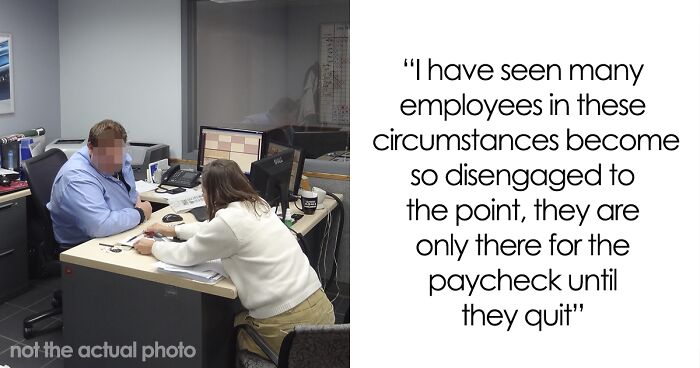
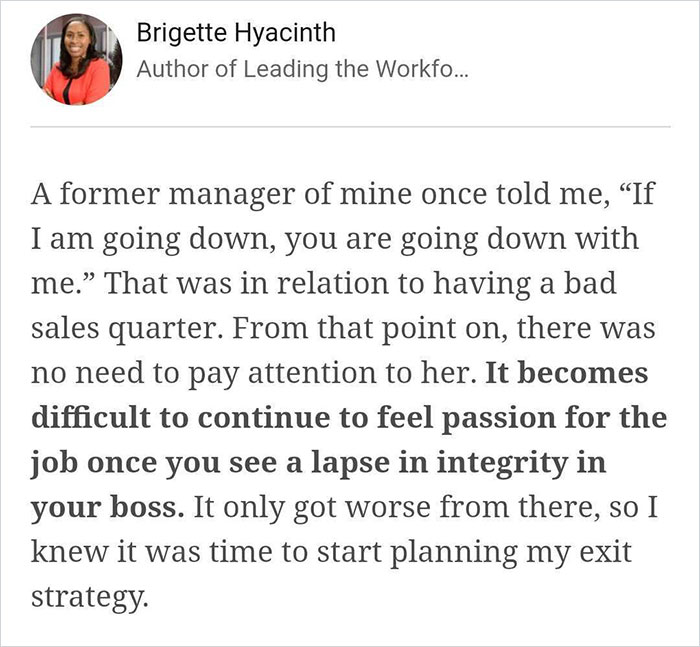
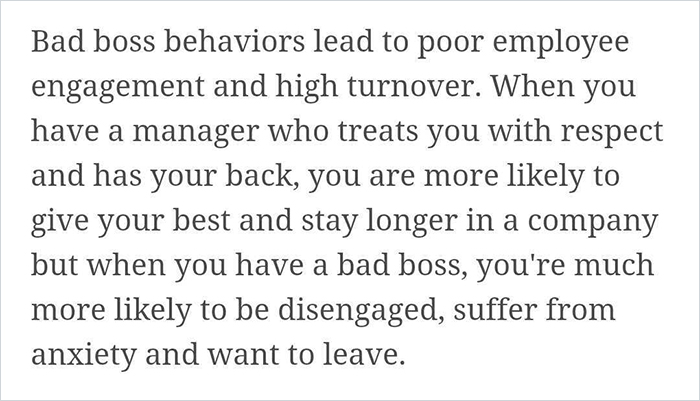
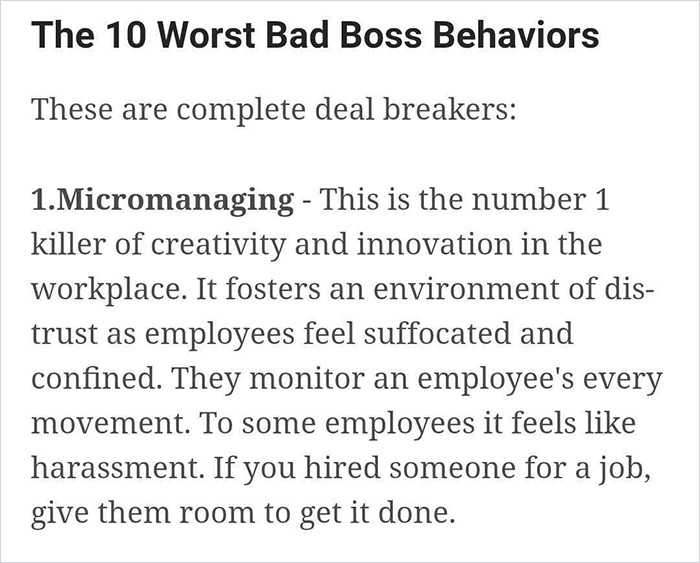
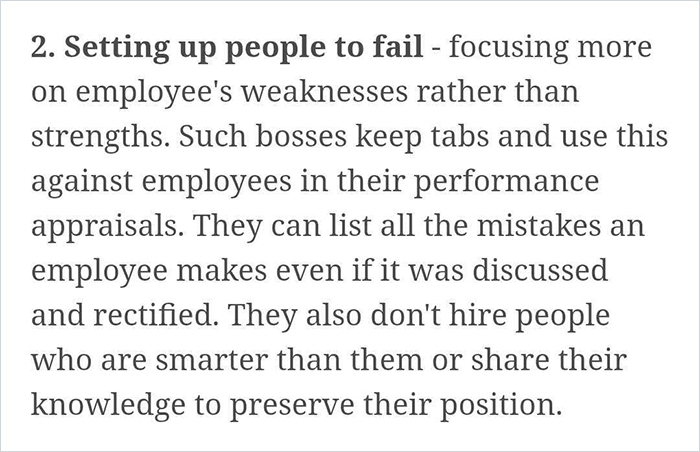
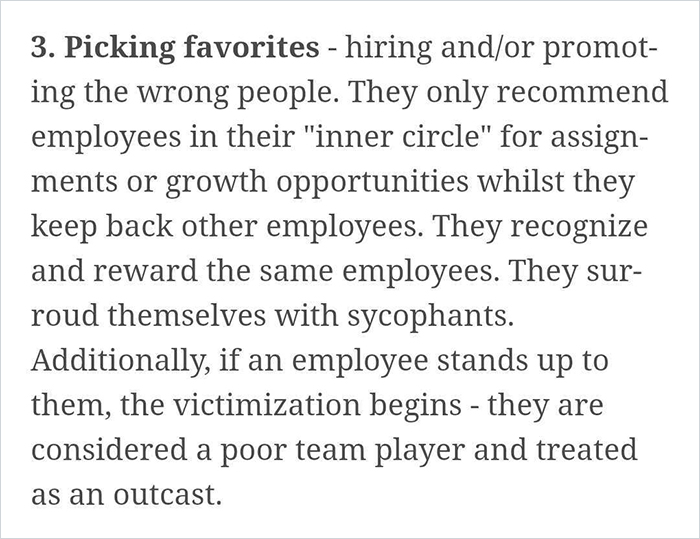
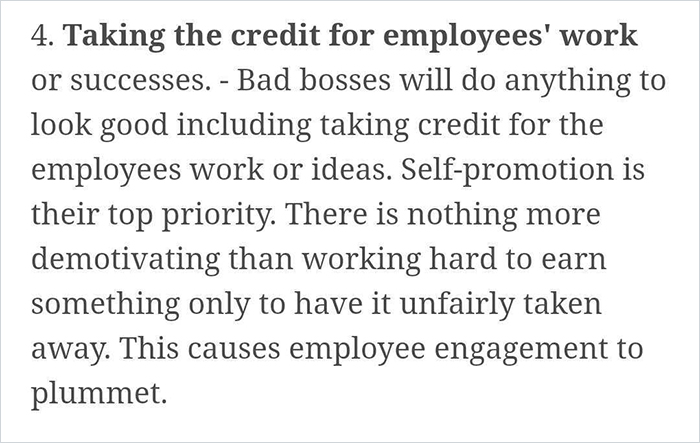
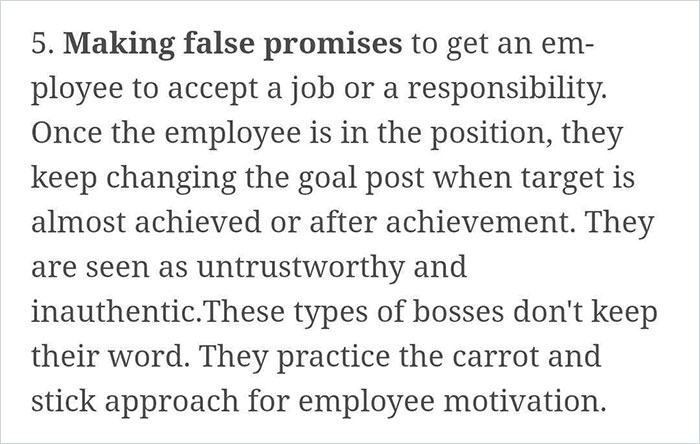
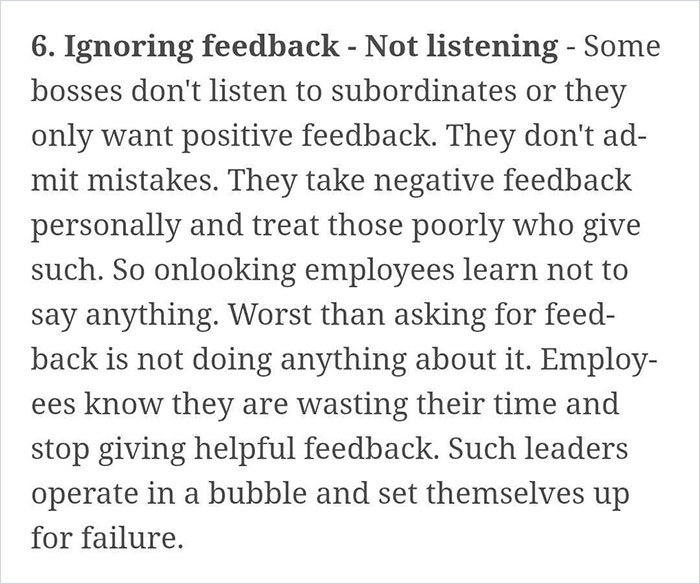
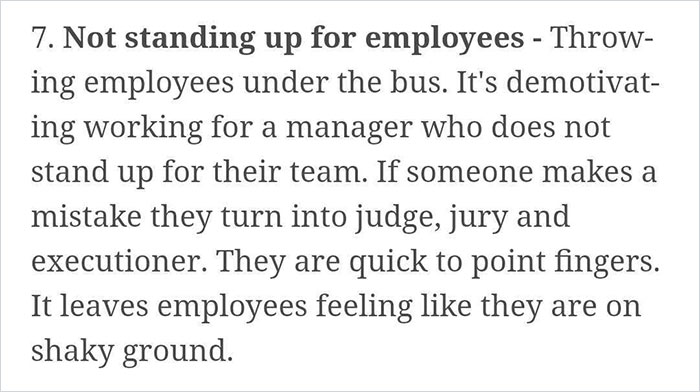
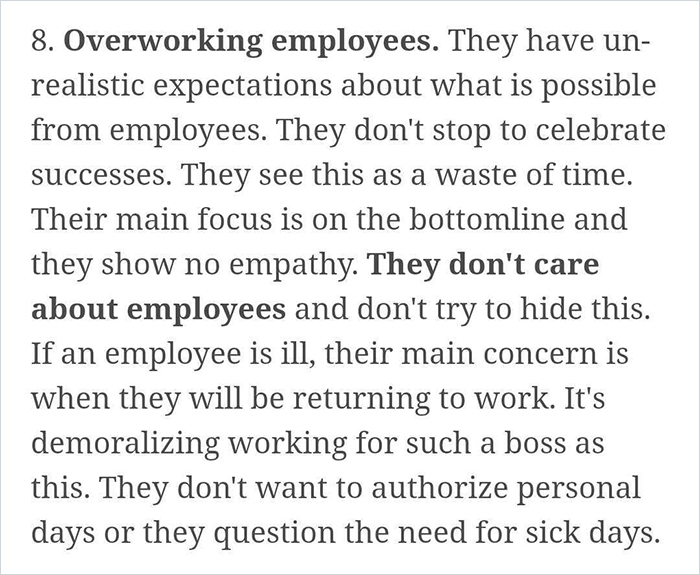
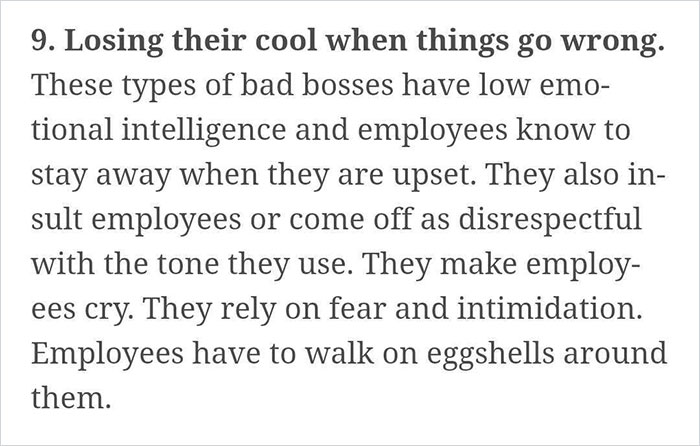
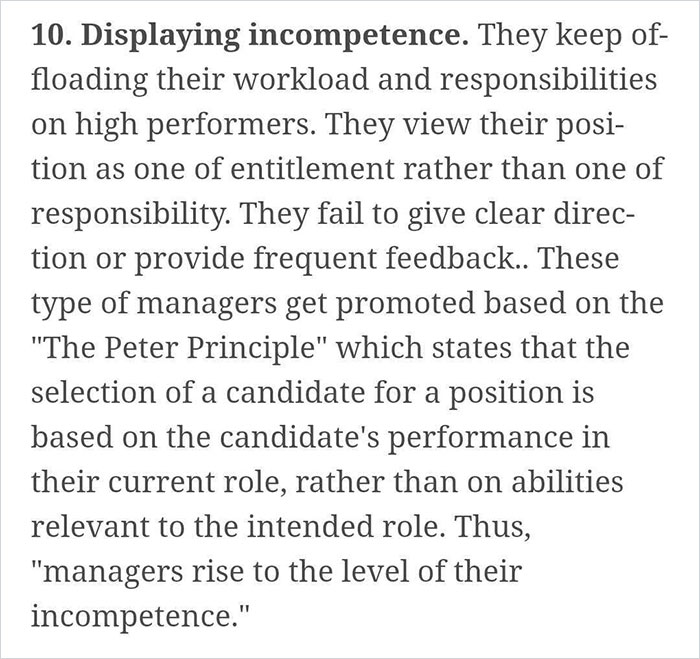
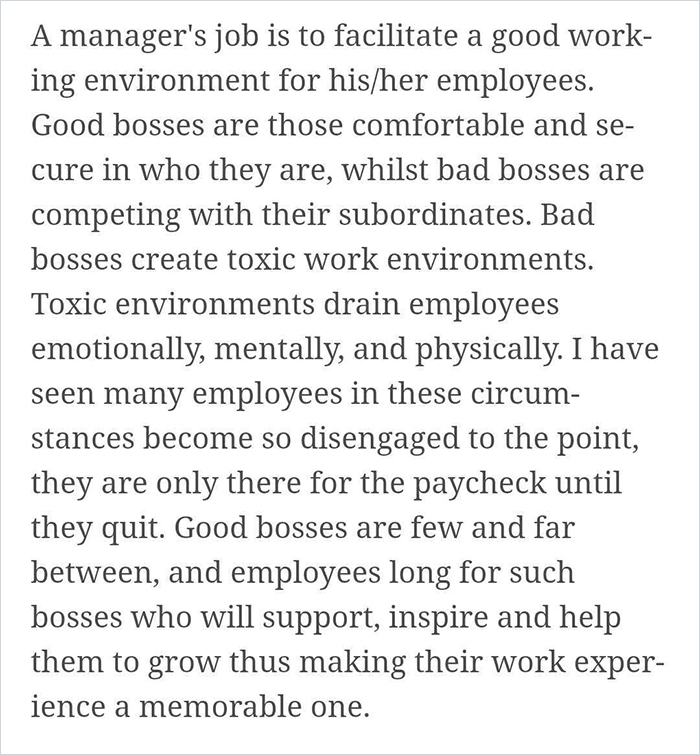
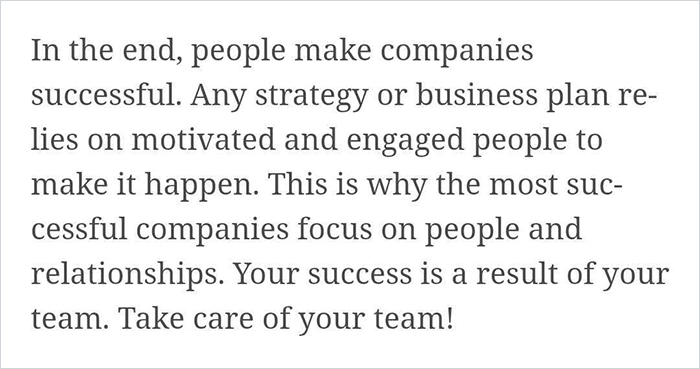





















































217
101